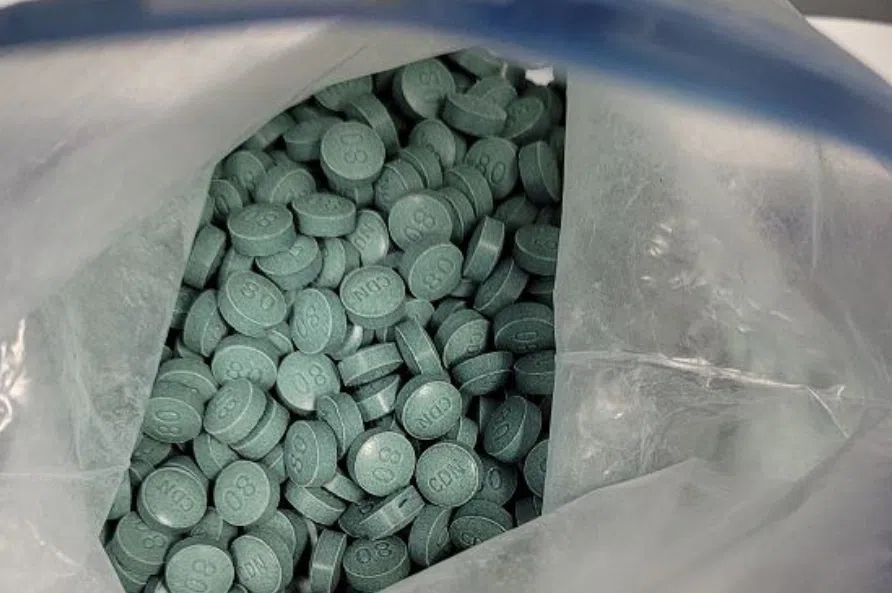A strain of the powerful opioid fentanyl is circulating in southern Saskatchewan, and the RCMP says it may be resistant to naloxone.
Naloxone is a fast-acting drug that can temporarily reverse the effects of opioid overdoses. According to the Mounties, the naloxone-resistant drugs don’t appear any different than normal, making them very dangerous and potentially lethal.
Police said the drug is circulating in southern parts of Saskatchewan, including the areas around Moose Jaw and Swift Current.
“Investigators believe the fentanyl may be mixed with benzodiazepines and xylazine, which increases the risk of an overdose which can’t be reversed by the administration of naloxone,” the RCMP explained in a statement Wednesday.
“We are unable to definitively comment on the composition of the fentanyl in question, as it remains under investigation.”
In a statement Wednesday afternoon, the Moose Jaw Police Service said the new strain of fentanyl hadn’t been found yet in that city.
The RCMP said officers have responded to fatal overdoses in southern Saskatchewan, but couldn’t provide a number connected to the naloxone-resistant fentanyl.
“The source and composition of this potentially lethal drug is under active investigation, but it was important for us to immediately alert the public of the danger present in our communities,” RCMP Insp. Jeff Smoliak said in a statement.
“This fentanyl strain is particularly alarming because it doesn’t look any different than others circulating. But if you take it and experience an overdose, it may be irreversible.”
Smoliak said using illegal drugs is “always dangerous,” but said that risk is heightened in southern Saskatchewan at the moment.
“If you or someone you love uses fentanyl, you need to know what to do in the case of an overdose,” he added.
The RCMP advised drug users to have a safe plan in place, don’t use drugs while alone, and know the signs of an overdose. Police also advised drug users to call 911 if an overdose occurs, and to keep naloxone on hand.
Police also noted the Good Samaritan Drug Overdose Act, which provides some legal protections for those reporting or experiencing drug overdoses, and said resources are available for those trying to break addictions.







